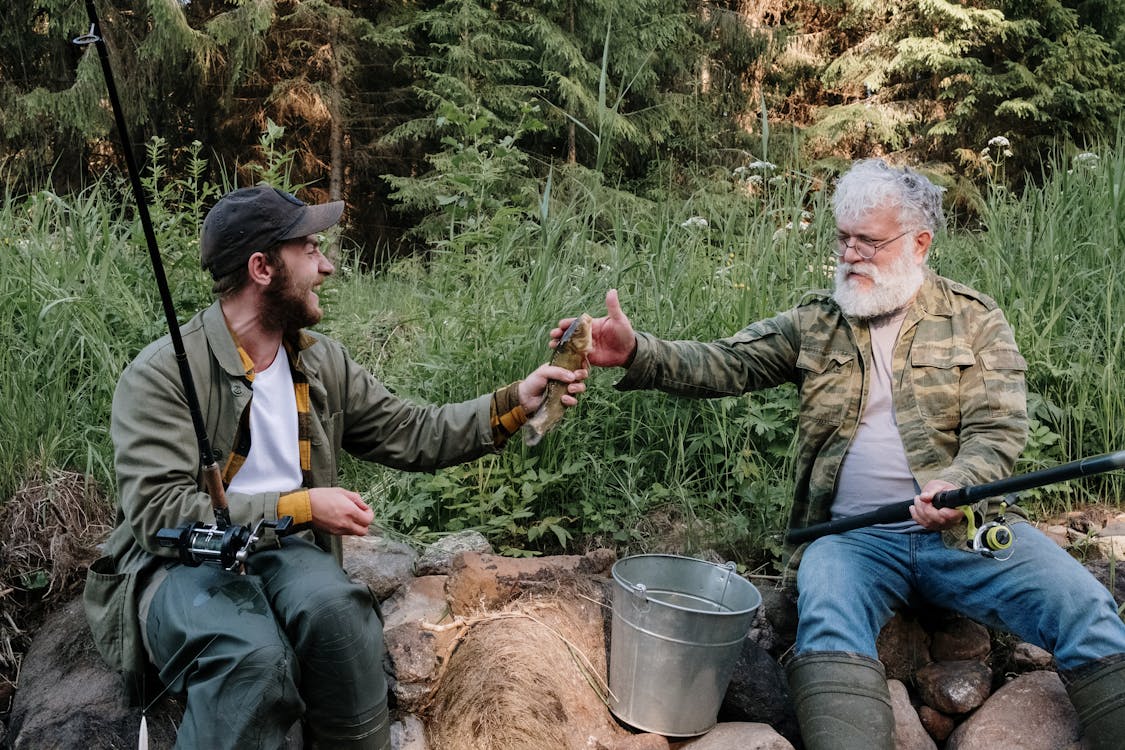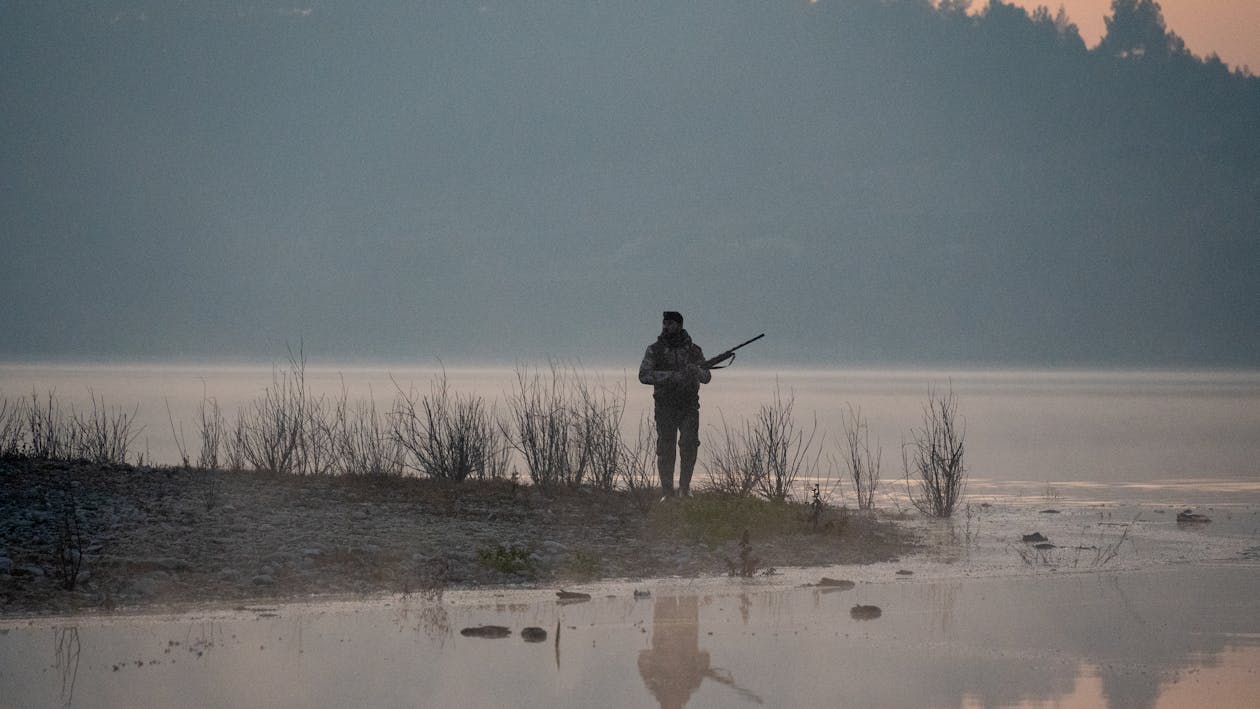What is Ethical Hunting?


Before you throw yourself into a new hobby of going on the hunt, you should know what it means to be an ethical hunter. Unlike what the media might say about hunting, the recreational activity is, for the most part, not out to destroy and kill the ecosystem of endangered animals or rial up landowners. Instead, hunting is a highly regulated and worthy pursuit when done ethically, and so today, we will present to you what it is and ways you can become more ethical out on the hunt.
Check out our guide to some Essential Hunting Tools to prepare you even more for a hunt.
What is Ethical Hunting?
Ethical hunting is all about respecting and considering the animals you are hunting, even if you intend to kill them for game, sport, or pest control. You can learn the basics of ethical hunting by considering the animals you intend to hunt, not just their species but their environmental impact and whether you can create real change that benefits the world. This could be to establish pest control programs or to pay to hunt in an area that goes towards the conservation efforts or another threatened species.
Below are some things you could ask yourself or keep in mind when hunting.
-
Are these animals endangered?
If the animal you hunt is endangered, you should consider whether it is worth the effort if you negatively impact the population. Consider hunting animals rich in game and more over threats to ecosystems or local farmers. You can judge this by getting advice from conservationists, and you may be able to work your hunting trip into established programs.
Why am I hunting?
You should always know why you are hunting. Even if it is for sport, you should understand why you are killing this particular animal and what you intend to do with the fallen game when you get it. Don’t throw away the corpse after the photo. Think about what businesses might benefit from the antler or bones and whether you could prepare the venison for a feast. If you’re vegetarian, donate the meat to a homeless shelter. Just don’t leave the corpse to rot where it fell.
Can I kill an animal quickly, so it isn’t in pain?
A good hunter knows how to kill an animal in the most efficient way possible that is quick and hits the vitals to cause instant death to a creature. You never want a creature to suffer, even if it is about to die anyway to your rifle. If you hit the beast and it doesn’t die instantly, be quick to reach it and finish it off with a blade, even if it is trying to flee from you.
The same is said if you are on the hunt and encounter an already injured animal. It is better to finish it home humanely if you are far from any wildlife vet.
Does the population of these animals need to be reduced because they are a pest to local industries such as farming or conservation efforts?
Sometimes we hunt animals because they are a pest to the conversation efforts of endangered or native animals. An example is the introduction of rodent species to New Zealand, which has had a massive impact on the native bird population; the same is said with cats and other predators that are abundant in number and hard to handle.
Conservationists and farmers might encourage hunters onto their land at certain times of the year to reduce the populations of rats, stoats, rabbits, foxes, wolves, wild boars and ducks. These hunting seasons might charge for entry to allow recreational hunters into these restricted hunting areas and use the funds to pay for the conservation of the environment.
Hunt an animal without doing it illegally.
Wherever you choose to hunt, you must check that the area and animals are not under legal protection before you go.
Check that they aren’t endangered or on privately owned land. Some government-owned regions are set aside for hunting, so visit them and see what animals inside these spaces are open for the hunt. With this map and list, you can hunt without worrying about being fined or damaging the ecosystem.
Respect the environment, animals and the impact of hunting practices on it.
The bottom line to ethical hunting is respect, whether the forest or wood you hunt in, the boar or elk you track, and the methods you practice on the hunt. You will be a great ethical hunter if you appreciate all these things.
Home in my hunting skills.
You must constantly be pushing to improve your hunting skills, whether with a gun, tracking or handling the aftermath of the hunt. You can kill an animal in a single shot and reduce its suffering by being the better aimer. You will be a proficient and safe hunter in the field and know when it might be best to leave the hunt behind. It's about being an efficient blade holder and carer, so your knife is never blunt when you head out into the wild. It's all these small things and having the care to be open to being taught something new.
Hunting Should be About Fair Game.
When you are hunting with others, you should not be rushing to be the first to take every kill.
Let others take the lead at times and allow them the moment of joy when they secure the perfect shot. It's about wearing high-vis jackets and being aware of your surroundings, so you don’t accidentally shoot something more than an animal. It's about friendly completion without turning it into a venomous spar.
Never Take More than What You Need.
Hunting is all about taking only what you need. Why kill ten boars if you only need one to make the perfect dinner? Hunting is beneficial to keeping populations at a sustainable level. Still, if you start over-culling them soon, there won't be enough game for everyone, and you might threaten to wipe out the whole breeding population from a region. So don’t be that hunter.
Don’t Waste What You Take.
You might only kill one boar, but what was the point if you left its corpse in its place of death? At least be willing to take the body to be processed for meat, sell or donate the pieces to those who might relish the chance for a feast.
Be Clean.
Clean up after yourself and dispose of any rubbish. For example, any food and business on a hunting trip should be carefully managed with bags, toilet paper, a trowel and a hole (only for organic matter). The same is said for animal debris after preparing valuable parts; even if you just want the tender meat, you should take the whole course and dispose of it or donate it accordingly.
Be Aware of Hunting News.
You should subscribe to the local hunting news source to keep up with the local hunting news. This will allow you to engage with the latest events, discussions, and legislation impacting hunting. For example, one place you regularly hunt might suddenly shift ownership and become illegal to hunt game on, so it's always essential to be up to date with the goings on.
Teach Others Your Knowledge of Respect for Nature and Ethical Hunting.
You should also teach others and lead by example by following the principles of ethical hunting. Make sure those you raise or hunt with know the basics of ethical hunting and that they show the proper respect for nature that all hunters should practice.
The Key Principles of Ethical Hunting

With all these essential things to consider above, the easiest way to remember the basic principles of ethical hunting can be summarised in four easy rules. You could keep a note nearby to remind yourself of what it takes to be the best hunter possible and preach these as the unofficial bible of the modern hunting pass time.
Final Remarks: What is Ethical Hunting?

The modern hunter should hunt ethically, and in doing so, they may ensure the continued conservation of the environment and, thus, plenty of game for future generations to hunt. So it is an essential practice that all hunters should educate themselves on to be better hunters as well as inhabitants of Earth.
Check out a great hunting knife to help you hunt ethically with Stag Knives.

